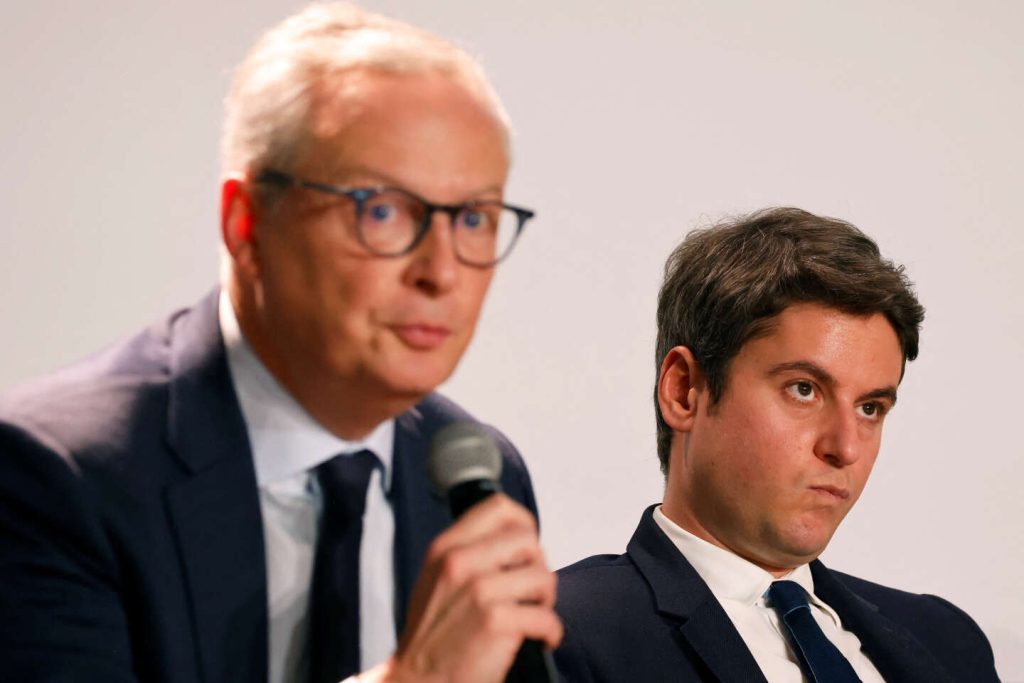The current crisis situation within the French presidential camp has revealed deep-seated dissensions and rivalries. This comes at a time when unity is crucial, as the upcoming European elections in June are seen as a critical test before the 2027 presidential election. With the Rassemblement National leading in the polls, both the left and the right are eager to break free from the duopoly that has dominated since 2017. The party in power is being targeted from all sides and must show strength to weather the storm.
The party’s supposed solidity is faltering due to the unexpected deterioration of public accounts and the urgent need to address deficits. The campaign, initially designed to focus on European issues and the response to major threats facing the EU, has taken a more national turn. This shift has exposed weaknesses in the government’s record, weakened the current president, and sparked the beginning of the succession battle. Emmanuel Macron’s popularity has taken a hit as economic indicators worsen, with his approval rating dropping to 25%. Opposition parties, such as the Rassemblement National and Les Républicains, are seizing the opportunity to criticize the government’s handling of the crisis.
The government is facing internal discord as the stakes of deficit reduction are high. The concept of “en même temps” has held the party together for six years, even during unpopular reforms such as pensions. However, cracks have begun to show, particularly regarding the approach to reducing deficits. There are factions within the party with differing views on how to respond to the rise of the Rassemblement National, reflecting the ongoing struggle between left and right ideologies. This internal conflict threatens the party’s cohesion and ability to navigate the current crisis.
The situation is exacerbated by the looming threat of a motion of censure by Les Républicains, who seek to capitalize on the government’s missteps by appealing to a more conservative base. The government’s struggle to find a unified response to the crisis is evident, as different factions within the party advocate for conflicting approaches. The implications of this internal strife go beyond the current crisis, signaling a potential shift in the political landscape as parties position themselves for the upcoming elections. The government’s ability to weather this storm and emerge stronger will depend on its ability to reconcile internal differences and present a united front to the electorate.
Despite attempts to focus on European issues in the upcoming elections, the campaign has been overshadowed by domestic concerns and criticism of the government’s handling of the economy. The president’s popularity has suffered as a result of slowing growth, rising unemployment, and widening deficits. This has emboldened opposition parties to challenge the government’s policies and present themselves as viable alternatives. The outcome of the European elections will not only impact the composition of the European Parliament but also set the stage for the presidential election in 2027. The government must navigate these challenges carefully to maintain its position and credibility in the eyes of the electorate.


